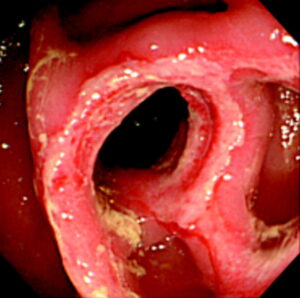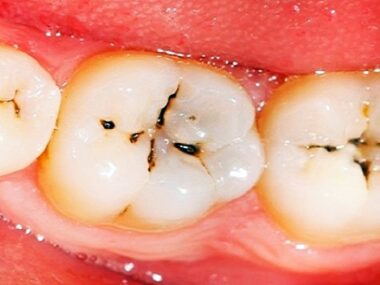Rectal bleeding, also known as hematochezia, is a medical symptom characterized by the passage of blood from the rectum or anus. This can be a concerning symptom and may indicate various underlying conditions.
Causes
- Hemorrhoids: Swollen blood vessels in the rectum or anus, which can cause painless rectal bleeding, often associated with bowel movements.
- Anal Fissures: Small tears or cuts in the lining of the anus, typically caused by straining during bowel movements or hard stools.
- Gastrointestinal Bleeding: Bleeding from various parts of the gastrointestinal tract, such as the lower intestine, colon, or rectum. This can result from conditions like diverticulosis, diverticulitis, colitis, or colorectal cancer.
- Infections: Infections in the digestive tract, such as infectious colitis or sexually transmitted infections, may cause rectal bleeding.
- Gastrointestinal Disorders: Conditions like inflammatory bowel disease (Crohn’s disease or ulcerative colitis) can lead to chronic inflammation and bleeding in the digestive tract.
- Anal Conditions: Conditions such as anal polyps or anal cancer may cause rectal bleeding.
- Medications: Certain medications, such as nonsteroidal anti-inflammatory drugs (NSAIDs) and blood thinners, can increase the risk of gastrointestinal bleeding.
- Rectal Trauma: Injury to the rectum due to various factors, including rough sexual activity, insertion of foreign objects, or physical trauma.
- Alcohol and Drug Abuse: Excessive alcohol consumption or drug use can irritate and damage the gastrointestinal lining, leading to bleeding.
Symptoms

The primary symptom of rectal bleeding is the presence of blood in the stool or on toilet paper after wiping. Additional symptoms may vary depending on the underlying cause and can include:
- Abdominal pain or cramping
- Changes in bowel habits
- Diarrhea or constipation
- Fatigue
- Weight loss
- Fever (if due to infection)
- Anal itching or discomfort
Diagnosis
Diagnosing the cause of rectal bleeding often involves a combination of medical history, physical examination, and diagnostic tests, including:
- Physical Examination: A healthcare provider will examine the rectum and anus, looking for signs of hemorrhoids, anal fissures, or other visible abnormalities.
- Blood Tests: Blood tests may be conducted to check for anemia or signs of infection.
- Imaging: Procedures such as colonoscopy, sigmoidoscopy, or barium enema may be performed to visualize the rectum and colon.
- Stool Tests: Testing the stool for blood or other markers can help identify the source of bleeding.
- Biopsy: If necessary, a tissue sample (biopsy) may be taken during a procedure like colonoscopy to diagnose conditions like colorectal cancer.
Treatment
The treatment of rectal bleeding depends on its underlying cause:
- Hemorrhoids or Anal Fissures: These conditions can often be managed with lifestyle changes, dietary modifications, and over-the-counter medications. In some cases, medical procedures may be necessary.
- Infections: Antibiotics or antiviral medications may be prescribed to treat underlying infections.
- Gastrointestinal Disorders: Conditions like inflammatory bowel disease may require medications to manage inflammation and control symptoms.
- Gastrointestinal Bleeding: Treatment may involve addressing the specific cause, such as diverticulitis, diverticulosis, or colorectal cancer, through medications or surgical interventions.
However, it is essential to seek medical attention if you experience rectal bleeding, especially if it is persistent, severe, or accompanied by other concerning symptoms.
Early diagnosis and treatment can lead to better outcomes while ignoring rectal bleeding could allow underlying conditions to progress and potentially become more challenging to manage.










